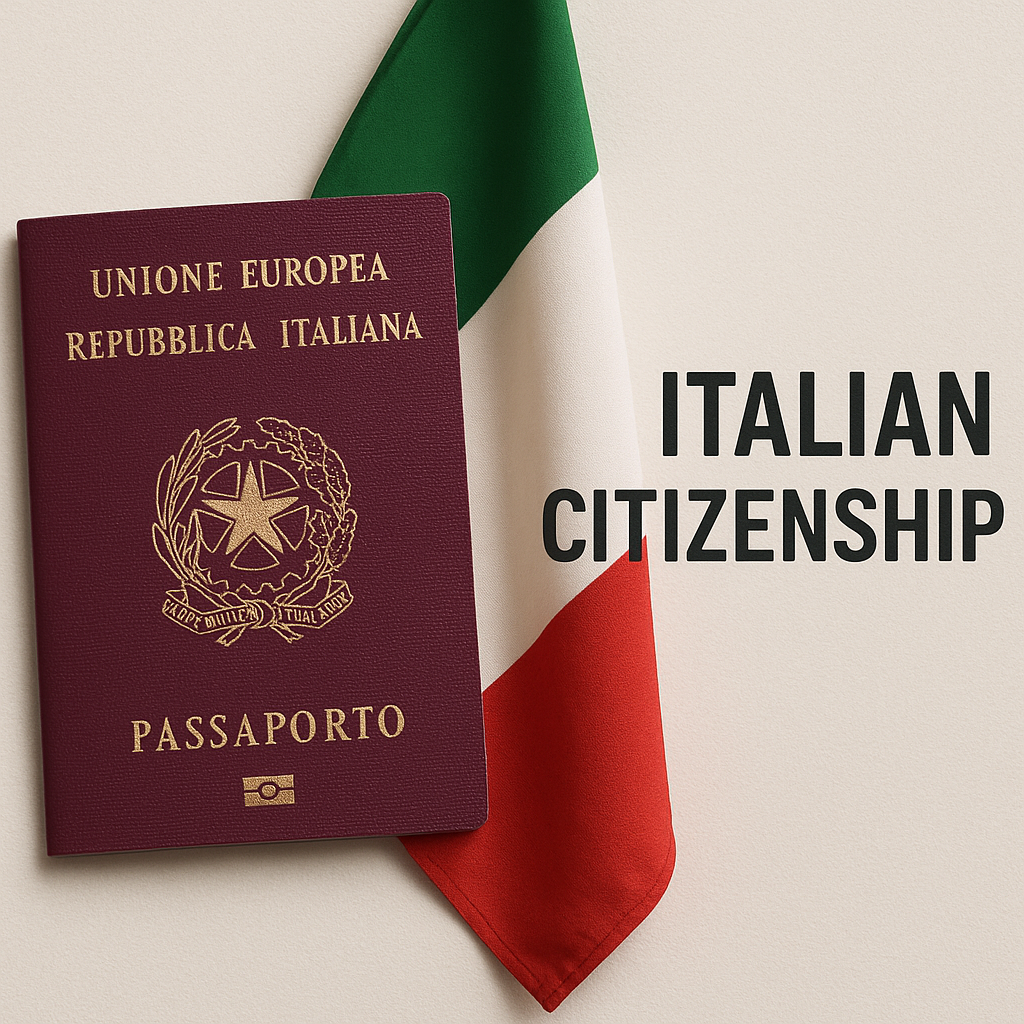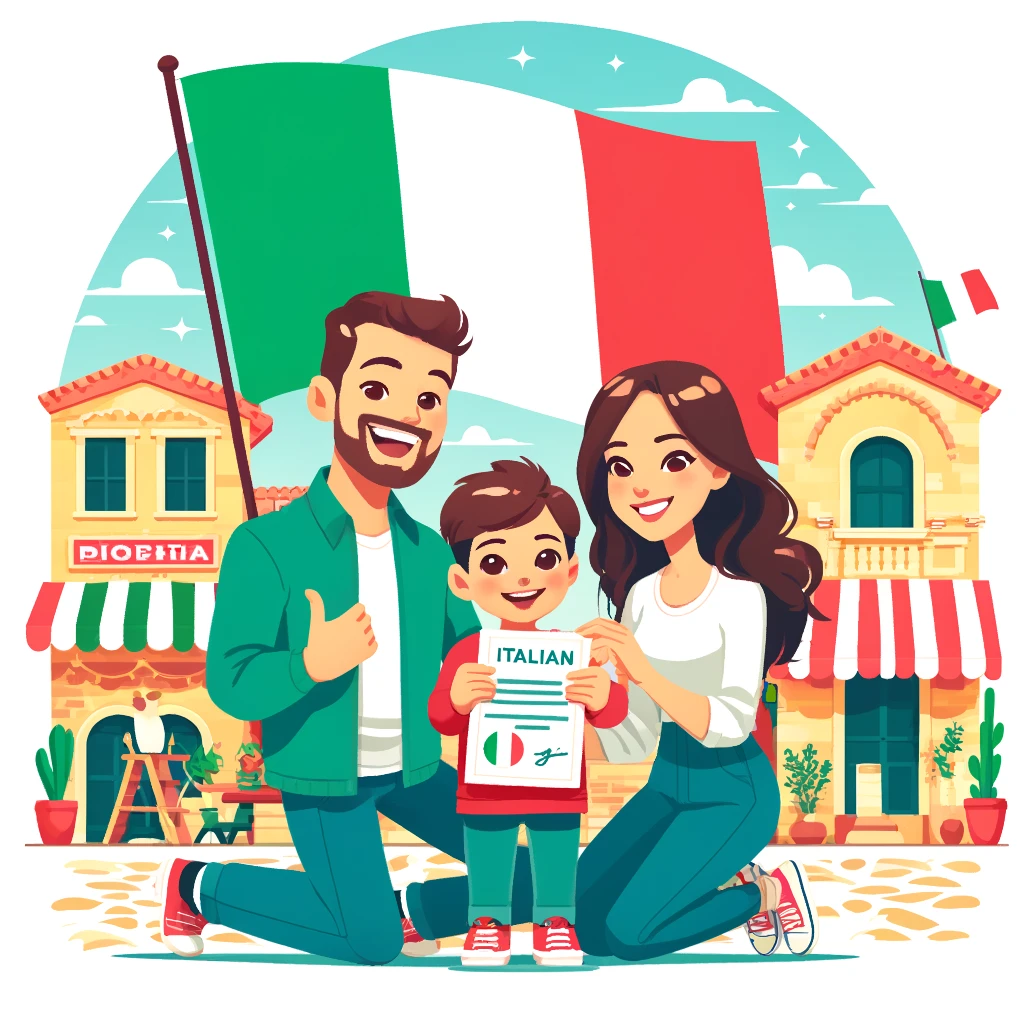Table of Contents
ToggleItalian Citizenship Through Your Child: Possible or Not?
Italian citizenship is primarily inherited from parent to child, not vice versa. However, there are scenarios where your child’s Italian citizenship could indirectly affect your eligibility. One of the main methods of obtaining Italian citizenship is through jure sanguinis, or “right of blood.” Nonetheless, other pathways may also be available, which we will explore together. Our guide article covers everything from understanding the concept of jure sanguinis to gathering the necessary documentation, such as your child’s birth certificate and proof of Italian ancestry, translated into Italian if required.
Whether you are looking to apply for Italian citizenship for your minor children or preparing for their citizenship when they turn 18, this guide will provide you with the essential information needed to navigate the process confidently.

Main Path to Italian Citizenship: Jure Sanguinis
As we already mentioned, Italian citizenship can be acquired in several ways. However, to answer the question given the most “Can I acquire Italian citizenship through my child?” we have a short answer: No. Italian citizenship is primarily passed down from parent to child, not the other way around. However, there are a few scenarios where your child’s Italian citizenship might indirectly play a role in your eligibility for citizenship.
Scenario 1: Minor Child Gains Citizenship, Then Turns 18.
If your child becomes an Italian citizen before they turn 18 and you stay in Italy with them after they become an adult, you may be able to become an Italian citizen through residency.
Here’s how it could work:
- Child’s Citizenship: Your child acquires Italian citizenship through one of the established routes (jure sanguinis, recognition, adoption, or parents’ naturalization) via an Italian court.
- Residence in Italy: You must be living with your child in Italy after they turn 18. The law requires “stable and effective” cohabitation, which means it must be your primary residence, and you must be able to provide proof of this living arrangement.
- Residency Requirements: While your child’s citizenship creates a potential opportunity, it doesn’t eliminate the need to fulfill Italy’s residency requirements. Typically, you’d need to be a legal resident in Italy for a specified period, usually 10 years. However, having a child who is an Italian citizen resident might allow you to apply under a reduced residency period, potentially as short as 3 years.
You’ll still need to meet other criteria, such as demonstrating financial stability and having a clean criminal record. More info you can get through the Italian consulate nearby.
Scenario 2: Adult Child Sponsors Parent
Another possible path, however less common, is through sponsorship by your Italian-citizen adult child. But there are more requirements for this path, and it’s not guaranteed.
Here’s what you need to know:
- Adult Child’s Citizenship: Your child must be an adult (18 or older) and hold Italian citizenship.
- Financial Dependency: You must demonstrate a significant financial dependency on your adult child. This typically involves proving that your child provides the majority of your financial support.
- Additional Requirements: Even if you meet the financial dependency requirement, you’ll still need to fulfill other criteria, including:
- Clean Criminal Record: A background check will be conducted to ensure you don’t have any criminal convictions.
- Integration into Italian Society: You may need to demonstrate a basic understanding of the Italian language and culture.
Why This Pathway Is Less Common? Due to stricter requirements, such as proving financial dependency, a lengthy and complex application process requiring extensive documentation, and a typically lower approval rate compared to other citizenship routes.
Still thinking sponsorship is right for you? Sponsorship may be a suitable option if you have a strong financial dependence on your adult Italian child and are ready to go through the lengthy application process. However, you should speak with an immigration lawyer who specializes in Italian citizenship to examine your case and decide if this is the best option for you.

Additional Pathways
If you do not qualify for citizenship through your child, there are alternative options you can consider:
- Jure Sanguinis (Through Ancestors): If you have Italian ancestors, you might be eligible for citizenship through jure sanguinis. This involves tracing your family lineage back to an Italian ancestor and proving their citizenship.
- Marriage to an Italian Citizen: If you’re married to an Italian citizen, you can apply for citizenship after meeting certain residency requirements.
- Residency: Living in Italy for an extended period can also make you eligible for citizenship. The required residency period varies depending on your circumstances.
- Special Merits: In rare cases, individuals who have made exceptional contributions to Italy can be granted citizenship through a special merits decree.
Wrapping up…
While obtaining Italian citizenship solely through your child is not possible, your child’s citizenship could play a role in your eligibility for citizenship through residency or sponsorship. However, it’s essential to explore all available options and seek expert advice to navigate the complex world of Italian citizenship law successfully.




